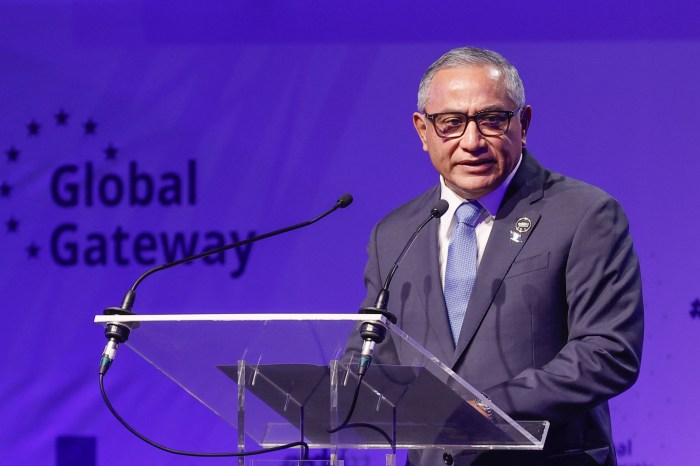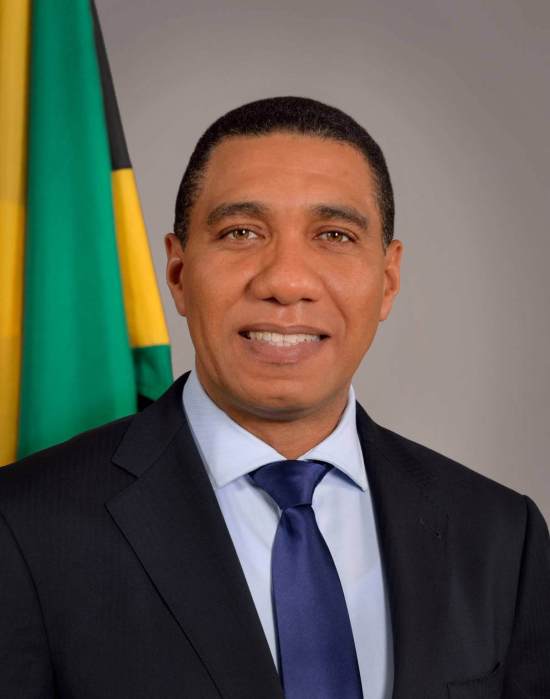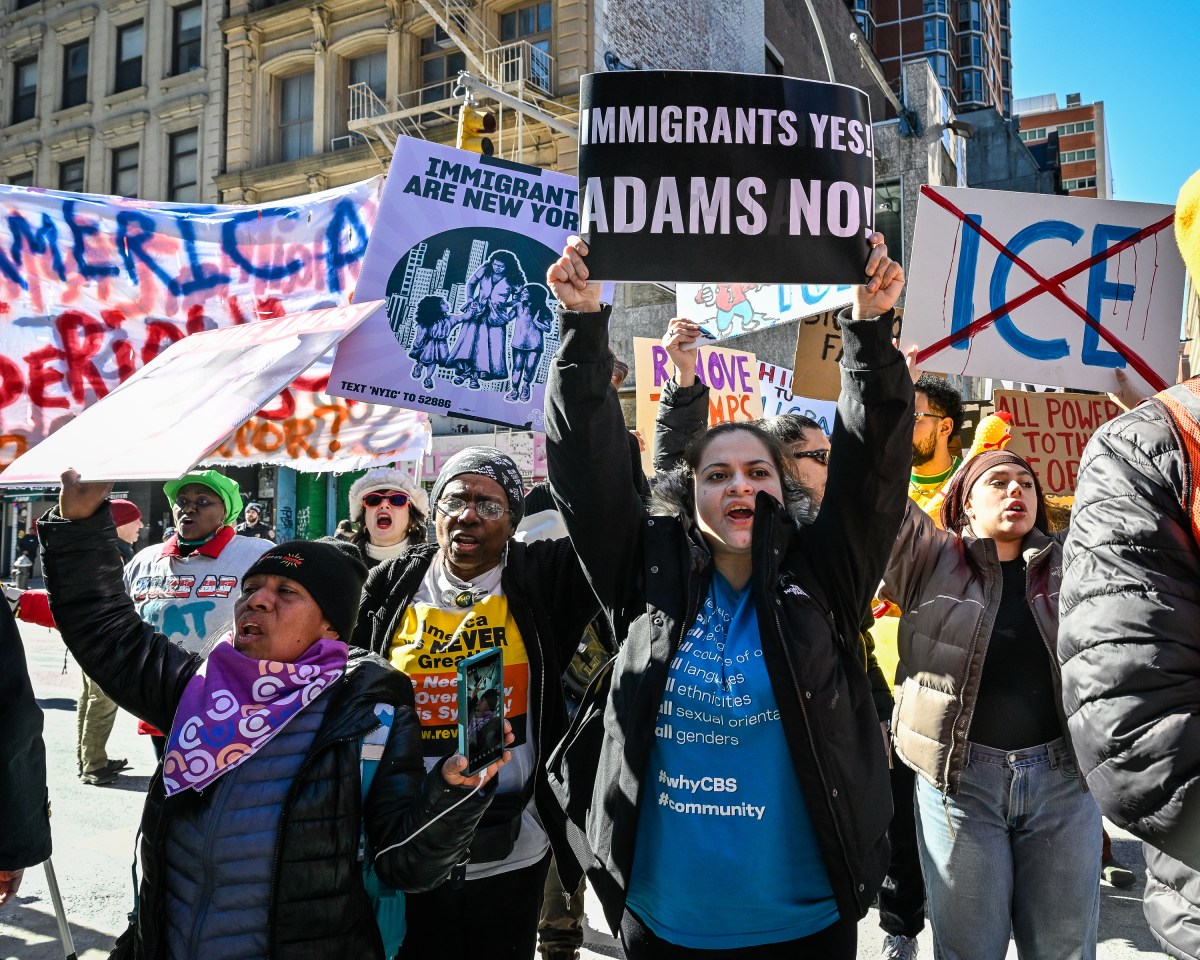The discontent had been building up for months and boiled over this week with hundreds taking to the streets of Paramaribo to demand that Surinamese President Chan Santokhi takes immediate measures to deal with widespread corruption, rising food, fuel and other prices, racketeering at the country’s central bank and a host of other ills affecting the Dutch-speaking CARICOM nation.
Suriname’s two-year-old, increasingly shaky coalition government is facing its toughest crisis yet with protestors taking to the streets on Monday and Tuesday to force reforms, chief among them rising food and fuel prices, and simmering discontent with cushy, high paying state appointments linked to Santokhi’s wife, Melissa, and Leo Brunswijk, the brother of controversial Vice President Ronnie Brunswijk among other high profile figures.
The protests forced Santokhi, 63, to Monday cancel attendance at a summit of some South American leaders in Paraguay and to admit that Surinamese have a range of gripes for being angry with the way the country of about 500,000 people is being administered. On Tuesday, police prevented them from protesting outside some government buildings as teachers and nurses abandoned their posts to join the street activists.
Santokhi has called for dialogue with the string of youths leading the so far apolitical protests, but they have bluntly refused to sit down with the head of state and talk, vowing to remain on the streets until reforms are put in place. “We don’t need fancy words. We had had to hear these things for two years now,” the Team Organic group said in a statement. “We have no desire to enter into a conclave with you privately or in a small context. In retrospect, we do not want to be accused of colluding with the government for our own personal gain. A national dialogue, on the other hand, in which all media houses and relevant experts will be present, sounds better,” they said as they urged political parties and labor groups to stay away from their midst.
The leaders said they are also angry that the central bank is in the midst of its second major scandal in the past three years with up to $240 million either being stolen or siphoned off by racketeers colluding with staff.
As prices continue to climb at the pump while reducing in other countries, the Sol Group closed all its stations on Monday, saying it is unable to obtain foreign exchange to pay foreign and other suppliers. This triggered snaky lines at the two other major dealers in the country even as they also complained about being unable to access foreign exchange.
For his part, Santohki, a former police chief and justice minister, said he did warn the country that tough times were ahead when he took office two years ago in the aftermath of an economic meltdown during the previous government.
“What is wrong must be fixed. No blaming others. Let’s keep the peace and talk to each other. That is also why I have decided to cancel a foreign commitment to be here with you now. When I took office, I indicated that the path of recovery would not be an easy one. That it would hurt. I also said that we will walk the journey of recovery together. That still holds true today, just like when I said it the first time.”
The coalition comprising the Indo-dominated VHP, the NPS of the mixed race and creole class and ABOP-PL, the party of interior Maroons, won general elections two years ago but has struggled to govern properly, get the economy under control and manage increasingly tense race relations. It has also been put under pressure by mistakes made by ABOP activists who have been accused of nepotism, handing out several plots of lands to friends and families with other legitimate applicants get none..
As well, the coalition received stinging criticism for secretly trying to borrow $2 billion from an Italian construction company to fund development projects without informing parliament or the country.
Like neighboring Guyana, Suriname has found a humongous amount of oil and gas offshore but production is unlikely to begin before 2025 when revenues will flow into the economy. Until then, the government is forced to struggle with receipts from the rice sector, a severely underperforming bauxite industry and tanking banana plantations to prop up the economy.


























